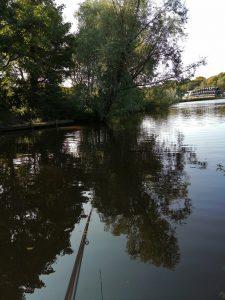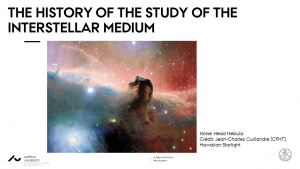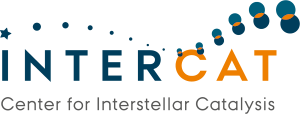I will follow Julia’s advice and not start my essay with a cliché, but instead, say I am also glad I was chosen for this PhD. During my third year of being an undergraduate I realized that I had, much to my shock at the time, started to enjoy doing research and found myself staying long hours in the lab. After this my desire to continue this new found passion for experimental research continued and I wanted to develop it further. However, when the pandemic started I was unsure whether or not I would be selected for any PhD position I applied for and assumed the most productive thing I would have done that year was to learn how to fish (for those interested I am still a shoddy fisherman).

Much to my surprise, after speaking to my now supervisor Liv Hornekær, I was invited to come to Aarhus to visit InterCat and learn about what they do. I met the team I now work with and helped people recreate the conditions of interstellar space in the Ultra High Vacuum (UHV) chambers. It was brilliant to be back working in a physics laboratory after so much time away and I really enjoyed my time there. I even got to spend some down time getting to know the city, I ate a meal with Rijutha and Gabi, and went to Frederik’s PhD defense among other things. This was a world away from the second wave struck UK I had left. During this I was offered the PhD position but after a month I had to return to the UK which ended up trapping me on the wrong side of the North Sea.
So after getting the PhD position to come to Aarhus to research if carbonaceous grains act as a catalyst for complex organic molecules in the interstellar medium, I was stuck in the UK. This was very difficult to comprehend and I felt cut adrift. However, like Julia said, “we have to be creative”, and so instead of sitting around continuing to try and learn to fish, I have tried to be productive. Julia and I have been attending InterCat meetings and seminars which has been a good way to begin to feel part of the group. Along with this I have started a few different courses, such as a student colloquium, where I will in the next few weeks present a seminar about the history of the interstellar medium. This involved researching into the interstellar medium and its history from the ancient Greeks who believed there was a sphere around the world with ‘fixed stars’ to the modern research we do at InterCat.

The title page of Alfred’s student colloquium
Another element of doing a PhD remotely is to make this blog discussing what the journey from home country to place of research during a pandemic has entailed. We aim to talk about our shared experiences to show you what it is like to undertake a doctorate under the current conditions. For any students who read this and are considering starting a PhD I hope reading about what the experienced has been like for us will help you decide what to do and know what to expect. For me, I wanted to do this to be a part of a team and contribute despite being in a different country.
